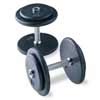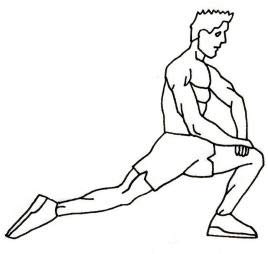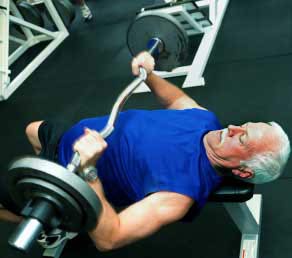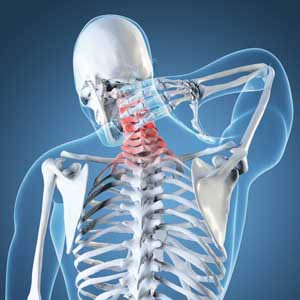- Like
- SHARE
- Digg
- Del
- Tumblr
- VKontakte
- Flattr
- Buffer
- Love This
- Save
- Odnoklassniki
- Meneame
- Blogger
- Amazon
- Yahoo Mail
- Gmail
- AOL
- Newsvine
- HackerNews
- Evernote
- MySpace
- Mail.ru
- Viadeo
- Line
- Comments
- Yummly
- SMS
- Viber
- Telegram
- JOIN
- Skype
- Facebook Messenger
- Kakao
- LiveJournal
- Yammer
- Edgar
- Fintel
- Mix
- Instapaper
- Copy Link
You’d Have to be a Mathematician to be able to Calculate the Immense Number of Benefits to Physical Exercise!

There are Many Physical as well as Psychological Benefits to Exercise
Everyone wants to know the benefits to exercise. Exercise has been known for literally thousands of years to be beneficial for everybody’s psychological and physical health.
Circa 400BC the father of modern medicine Hippocrates once said,
“If we could give every individual the right amount of nourishment and exercise, not too little and not too much, we would have found the safest way to health.”
This timeless piece of advice only reveals the tip of the iceberg to the long list of the benefits to exercise.
What are Some Benefits to Exercise ?
The SAID Principle explains the Exact Benefits of Exercise
The SAID principle is an acronym for Specific Adaptations to Imposed Demands which simply means, the type of exercise you perform determines which benefits you will receive.
A simple example is if your workout consists of lifting heavy objects for an hour, the benefits to exercise will be increased strength. If you jog 5 miles, the benefits to aerobic exercise will be increased cardiovascular endurance. If you spend an hour stretching your muscles, you will experience increased flexibility.
While these benefits to exercise may be obvious it is important to consider the SAID principle whenever you choose your mode of exercise.
To list the benefits of physical exercise we will separate them into 3 categories:
Aerobic Exercise
Aerobic exercise is synonymous with cardio exercise because it is exercise with the presence of oxygen which is transferred by your heart and lungs.
The Benefits to Aerobic Exercise
Obvious
- Strengthen your Heart
Your heart is a muscle and the exercise which strengthens it is aerobic exercise. Aerobic exercise can increase stroke volume. Stroke volume is the blood your heart is able to pump each beat. A more efficient heart needs to beat less which lowers your resting heart rate and helps your heart last longer.
- Improve Lung Capacity & Boost Stamina
Stamina is all about the efficiency of your lungs and heart to transfer oxygen via blood to your working muscles. One of the best benefits to exercise aerobically is to improve your ability to perform activities without tiring easily.
- Reduce the Chance against Chronic Disease
Regular aerobic exercise reduces the chance of premature death associated with high blood pressure, heart disease, certain forms of cancer, stroke and high cholesterol.
- Keep Excess Pounds Off
Aerobic exercise uses lots of energy. Performing bouts of aerobic exercise regularly will burn the excess calories you obtain in your diet reducing the chances of gaining undesirable weight in the form of fat.
Not so Obvious
- Improve your Mood

You may have heard of a “runner’s high” before and it is not a myth. Aerobic exercise causes your brain to release opiates-like chemicals called endorphins which put you in a good mood and can help relieve stresses such as anxiety and tension.
- Improved Sex Life
Regular exercise can leave you feeling energized and looking better, which is one of the benefits of exercise which improves your circulation, which leads to more satisfying sex as well prevents erectile dysfunction.
- Improves Defense against Viruses
Aerobic exercise helps to activate your immune system. This leaves you less susceptible to minor viral illnesses, such as colds and flu.
Resistance Training
 Resistance training is synonymous with weight training but it can include exercises with any form of resistance including free weights, weight machines, resistance tubes, thera-bands and body weight. Weight training is anaerobic which means without oxygen so the activities are short, intense bouts of exercise in which your muscles do the work.
Resistance training is synonymous with weight training but it can include exercises with any form of resistance including free weights, weight machines, resistance tubes, thera-bands and body weight. Weight training is anaerobic which means without oxygen so the activities are short, intense bouts of exercise in which your muscles do the work.
Weight Training Benefits to Exercise
Obvious
- Increased Muscular Strength
Weight training will help your body be more neurologically efficient so you actually use more of your muscle fibers to get stronger first. Secondly your muscles will hypertrophy or get bigger in size to become capable of lifting heavier weights.
- Increased Muscular Endurance
Along with increased strength your muscles will improve the stamina for prolonged muscle contractions.
- Improved Muscle Tone
“Move it or lose it” your parents used to tell you. It is true as weight training works muscles that otherwise you would not be using much. If you have low body fat, weight training helps your muscles look more shapely and toned.
Not so Obvious
- Decreased Body Fat, Weight Loss & Increases Metabolism
Even though weight training is a anabolic (muscle building) stimulus, it helps increase your body’s metabolism which is how many calories you burn throughout the day. This will work wonders for anyone trying to lose weight and burn fat while following a proper diet and staying active.
Flexibility / Mobility Training

Flexibility training, stretching and mobility training are a few different techniques for lengthening your muscles and/or moving your joints through various motions to increase range of motion.
What are the Flexibility Benefits to Exercise ?
Obvious
- Increased Flexibility
Flexibility training increases your flexibility, go figure
- Increased Range of Motion
Flexibility training helps keep the natural range of motion for your joints which is optimal for normal, activities of daily living.
Not so Obvious
- Improved Blood Flow
Flexibility training helps your muscles remain free of the byproducts of muscle metabolism (knots) and enables your blood to flow optimally into muscles for circulation and nutrient delivery.
- Decreased Risk of Injury
Even though there is evidence which shows that stretching directly before physical activity does not reduce the chance of acute injury, flexibility training appears to drastically reduce the chance of chronic, overuse injuries due to muscle imbalances and problems with your posture.
- Improved Muscular Coordination
When your muscles are flexible, they do not interfere with the antagonist (opposite) muscles and motor unit recruitment allowing you to have better coordination.
- Reduce Muscle Soreness

Flexible muscles have good blood flow which allows blood to flow into the muscles with the nutrients to repair the muscles without causing excess muscle soreness from exercise.
- Improved Posture
Your musculoskeletal system (bones, joints, ligaments, tendons and muscles) can be looked at as a kinetic chain where you are only as strong as your weakest link. Flexibility training can help your muscles remain at the proper length so your body will be in proper postural alignment.
Tired of Being Tired? Reap the Benefits of Daily Exercise
About Michael Behnken
Mike Behnken is a personal trainer who holds multiple NASM certifications and a MS in Exercise Science. Mike loves fitness, travel, and photography among many other interests.




